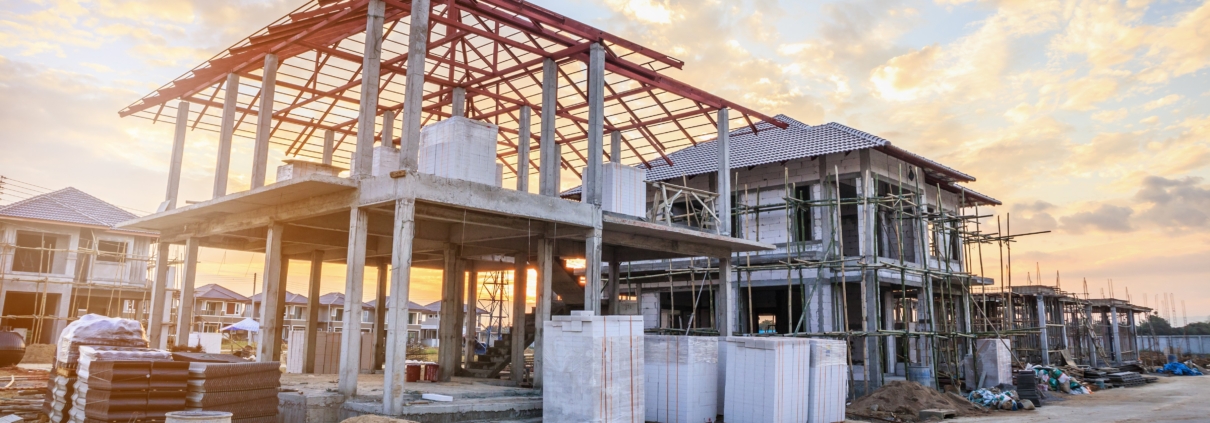Managing Rising Material Costs: Budgeting and Forecasting for Contractors
Rising material costs have become one of the most significant challenges in the construction industry. From steel and lumber to concrete and insulation, contractors are grappling with price increases that impact project budgets and timelines. As supply chain disruptions and inflation continue to drive costs upward, contractors must adopt effective strategies for budgeting and forecasting to stay competitive and maintain profitability.
In this blog, we’ll discuss practical approaches for managing rising material costs, including budgeting strategies and the importance of accurate forecasting for contractors.
Why Rising Material Costs Matter
Construction material costs have been volatile over the past few years, and fluctuations can have a significant impact on a contractor’s bottom line. When materials become more expensive, the cost of completing a project rises, potentially leading to lower profit margins or project delays. With the increasing unpredictability of material prices, contractors must be proactive in their financial planning and project management to avoid cost overruns.
- Supply Chain Disruptions
Global supply chain issues have contributed to delays in material availability, driving up prices. Contractors need to understand the impact of these disruptions on their projects and take steps to mitigate the risks.
- Inflation
Inflation continues to affect the cost of raw materials, which increases the overall cost of construction. With materials becoming more expensive, contractors must find ways to adjust their budgets without compromising quality or cutting corners.
- Market Fluctuations
Material prices are often influenced by demand and availability. Contractors must track these fluctuations and incorporate them into their planning to ensure accurate cost estimations.
Budgeting Strategies for Managing Material Costs
To successfully manage rising material costs, contractors need to implement smart budgeting strategies that account for price increases and help mitigate the impact on project profitability.
- Incorporate Buffer Costs
A smart budgeting strategy involves incorporating buffer costs for materials. Contractors should account for price volatility by setting aside additional funds to cover unexpected material price increases. A well-calculated buffer can help ensure that a project stays on track even when material prices rise unexpectedly.
- Negotiate with Suppliers
Establishing strong relationships with suppliers can help secure better pricing and more predictable delivery schedules. Contractors who negotiate long-term contracts or bulk purchase agreements may be able to lock in favorable pricing, reducing the impact of price increases during the project.
- Use Cost-Effective Materials
When possible, consider using alternative, cost-effective materials that still meet the required quality standards. Substituting expensive materials with more affordable options can help reduce overall project costs while maintaining performance standards. Additionally, investigating sustainable materials can sometimes offer cost savings and attract clients who prioritize eco-friendly solutions.
- Review Past Projects for Insights
Analyze previous projects to identify trends in material costs. By reviewing historical data, contractors can gain valuable insights into how material prices have fluctuated over time and use this information to make more accurate projections for future projects.
- Monitor Material Prices Regularly
Tracking material prices on an ongoing basis is crucial for adjusting your budget and forecasting. Regularly monitoring market trends and supply chain conditions allows contractors to make adjustments to budgets as material prices change. This proactive approach can help prevent surprises when prices increase unexpectedly.
The Role of Forecasting in Managing Material Costs
Forecasting plays a crucial role in managing material costs and ensuring that a contractor’s budget is realistic and sustainable. By accurately forecasting material needs and costs, contractors can make informed decisions and avoid costly mistakes.
- Material Quantity Forecasting
Accurately predicting the amount of material needed for a project is essential for controlling costs. Contractors should base their material forecasts on detailed project plans, accounting for waste and unforeseen changes in the scope of work. By purchasing the right amount of materials upfront, contractors can avoid paying for excess material or dealing with shortages that lead to project delays.
- Market Trend Analysis
Forecasting material costs requires a thorough understanding of market trends. Contractors should stay informed about potential supply shortages, price trends, and other factors that could affect material availability. Being aware of upcoming price hikes or changes in the supply chain can help contractors plan their budgets and procurement strategies more effectively.
- Scenario Planning
Scenario planning allows contractors to prepare for different price scenarios and supply chain disruptions. By modeling various cost outcomes, contractors can identify strategies to minimize the financial impact of material price increases. This approach enables contractors to make informed decisions about when to purchase materials and how to adjust their budgets accordingly.
- Collaboration with Financial Advisors
Working closely with financial advisors or accountants can help contractors make more accurate forecasts. Financial professionals can help assess cash flow, predict potential material cost increases, and recommend strategies for managing fluctuating costs. Collaborating with a financial expert ensures that contractors maintain a stable financial position throughout the project lifecycle.
How Brady Martz Can Help
At Brady Martz, we understand the complexities of managing rising material costs in the construction industry. Our team of experts can assist contractors in creating detailed budgets, implementing forecasting models, and identifying cost-saving strategies. With our financial expertise, we can help ensure that your projects are completed on time and within budget, even in the face of rising material costs.
Contact Brady Martz today to learn more about how we can support your construction business in managing material costs effectively while improving profitability.




